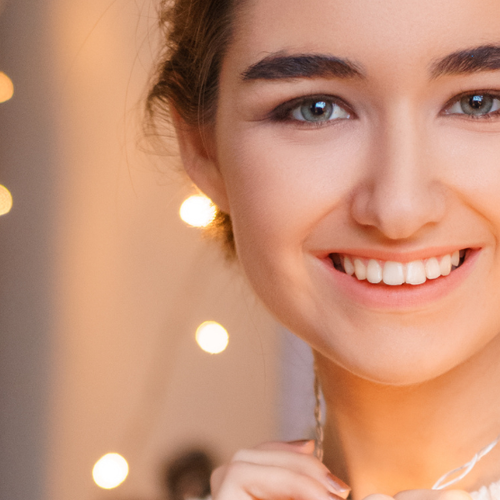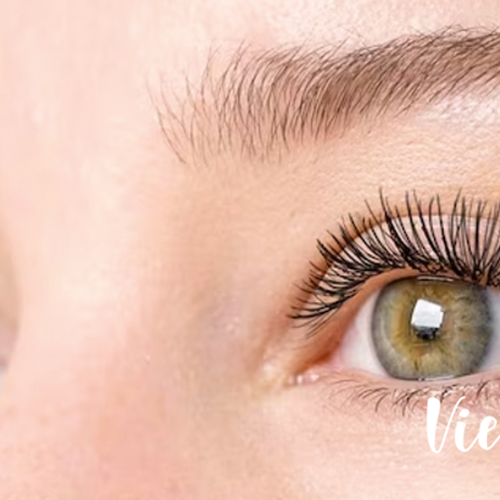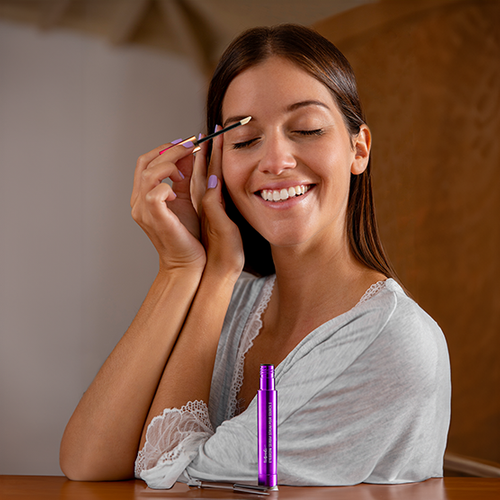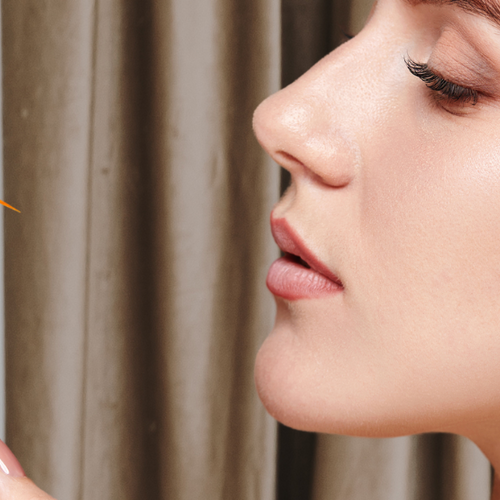Anyone who has experienced persistent acne knows the difficulty of attempting to alleviate the scars it leaves behind. But don't forget that as you work to diminish the existing acne marks, you may also prevent future ones from forming. You can ensure many future acne-free days by breaking a breakout cycle that often feels relentless.
What are the causes of acne?
Hormones such as androgen, which stimulates sebum production, can cause breakouts. Genetics, diet, overuse of topical products, and environmental factors, such as pollution, can all lead to acne and other types of skin irritation.
What are the foods that cause acne?

The relationship between food and acne can vary from person to person. The nature of certain foods and their impact on acne may not be the same for everyone. Additionally, you may find that particular food seems to improve or worsen your acne. Consider keeping a food diary to observe how specific foods affect your skin health.
How to prevent acne?
There may not be a failproof method to eliminate acne scars forever, but you should do your best to reduce your breakouts and safeguard the health of your skin.
Here are ten acne prevention tips that absolutely work:
1. Wash your face properly
Keeping your skin clean and removing bacteria, residue, and sweat daily can prevent pimples, but washing your face too much can increase acne. As a rule, you will typically want to wash your face no more than twice a day.
2. Identify your skin type
Understanding your skin type can help you ascertain which products you should use to prevent skin damage. All it takes is your skin type and conditions to determine which acne regimen will work best for your skin.
3. Use a moisturizer
Moisturizers maintain your skin hydrated, which benefits skin affected by acne. If your skin is very dry, it produces sebum to counteract the dryness. However, many moisturizers are based on oils, fragrances, or other compounds that may harm your skin and cause acne. Check the ingredient list for ingredients to ensure they don't contain oil, fragrances, or other products that could trigger skin irritation.
4. Always stay hydrated
Dehydration will cause you to produce more oil in your skin's oil glands. Dehydration also contributes to a dull complexion and promotes inflammation and redness. To help you stay hydrated, aim to consume at least eight 8-ounce glasses of water each day.
5. Use acne treatments from over-the-counter

Over-the-counter acne removal products can be helpful in healing pimples and even in preventing their formation, too. Not sure which acne treatment suits your needs or skin goals? Visit a dermatologist who may help you find a well-suited cure for your skin. A dermatologist can provide professional guidance on any medication interactions to take, as well as skincare recommendations.
6. Refrain from touching your face
Pores on your face are the first target of germs that enter your body by visiting your nose—touching your face transfers bacteria there. When you're distracted, staying away from touching your face is challenging. Try to note how often you touch your facial skin and refrain from doing it as much as possible.
7. Don't put on too much makeup
While you can try to hide pimples with makeup, doing so can clog pores and bring about outbreaks. Suppose you're not interested in giving up makeup from your routine. In that case, you could opt between a foundation or a concealer that does not contain any comedogenic materials or scent and doesn't trigger further irritation of your skin. Make sure your makeup is completely free before you sleep every night.
8. Avoid frequent sun exposure
Catching some sun may dry out pimples in the short term, but it can ultimately lead to long-term skin problems. Frequent exposure to sunlight will cause your skin to dry up, increase oil production, and clog pores.
Sunscreen is an easy way to safeguard your skin all year long. No doubt, you already know that sunscreens tend to be oily. For sun and pimple protection, choosing a non-comedogenic, oil-free sunscreen is a great idea.
9. Do stress-busting activities
Stress does not make pimples; however, it can worsen them. As reported by the American Academy of Dermatology (AAD), the body produces excess oil-stimulating hormones when you're stressed. Try undertaking yoga, meditation, massage, and physical exercise to alleviate your stress level.
10. Give tea tree oil a try
Tea tree oil is an effective ingredient to relieve acne caused by a bacterial infection. The active ingredient in tea tree oil, terpinene-4-ol, is shown to kill certain bacteria, viruses, and fungi, as well as increase white blood cells to encourage recovery. To treat pimples with tea tree oil, apply a few drops to a spot or add it to your daily skin cleanser or moisturizer. Try VieBeauti's acne treatment cream with tea tree oil and plant extract.
How can you prevent acne scars?

The number of people suffering from acne scars is contingent on their effectiveness in combating acne. Avoiding acne scars is associated with preventing acne. You can lower your chance of getting acne scars by avoiding pimple popping and picking so you can reduce inflammation, which can damage spots. You can also avoid prolonged sun exposure and stop smoking, which impairs your skin's healing process.
How to prevent cystic acne?
Clogged pores turn into swollen or inflamed cysts on the skin. Clogged pores can lead to cystic acne, so taking steps such as keeping your skin clean and using the right treatments to unclog pores to help prevent this type of acne may help you avoid it.
How to prevent hormonal acne?
While it usually concerns hormone fluctuations during adolescence, hormonal acne can affect adults of any age. It tends to be most typically diagnosed in females. This may be caused by menstruation and menopause.
Because acne can almost always occur, you can take steps to lower the likelihood of breakouts, such as choosing skincare products that do not clog pores. Making lifestyle changes like sleeping better, eating a healthy diet, and reducing stress also help.
The occurrence of pimples is generally unavoidable. Preventive measures may help reduce breakouts but do not offer complete protection. Hormones, stress, genetics, and diet are typical causes of pimples. Certain prescription and over-the-counter drugs may cause breakouts, too.
It means you have plenty of options for dealing with pimples. Just know that patience and consistency are more likely to bring about success in whatever pimple cure you choose. A bit of acne treatment creams like VieBeauti's Acne Treatment Cream with tea tree oil and plant extracts will help reduce the size of a single pimple overnight, leaving your face glowing with youth as the tea tree oil penetrates your pores and gets rid of acne. Give it a try!







0 comments